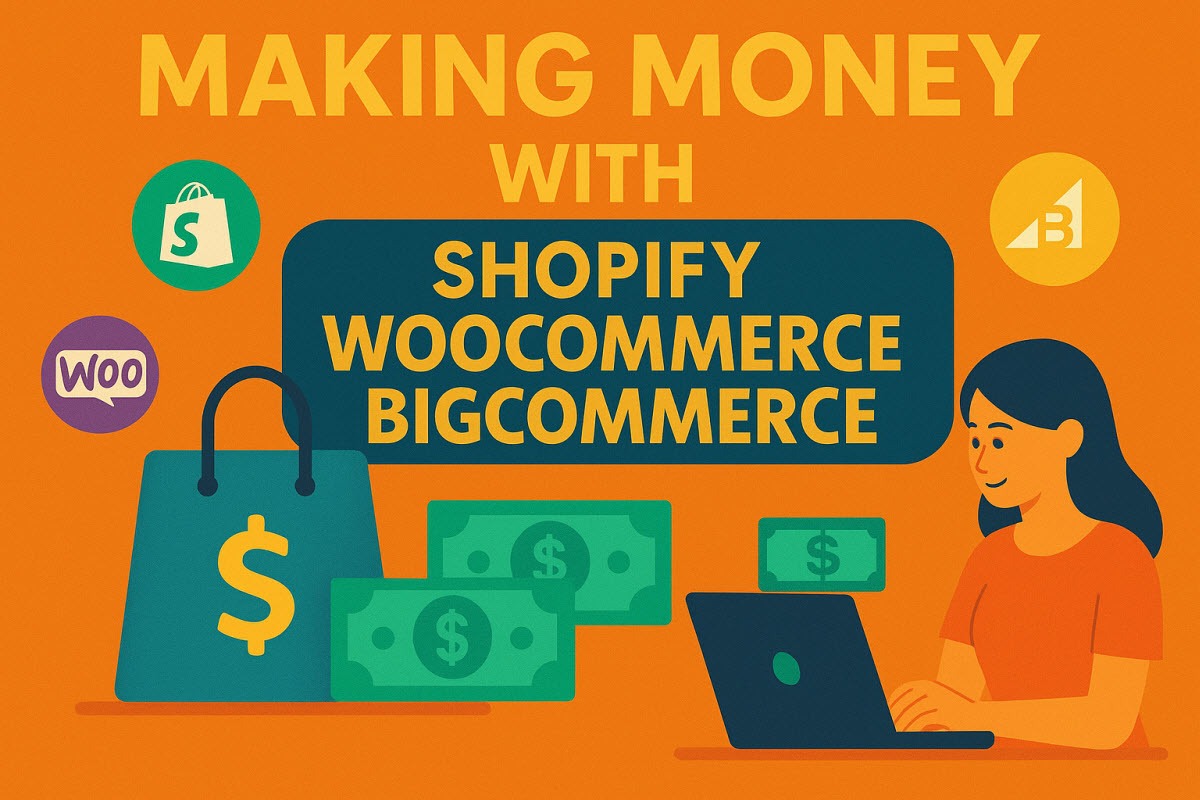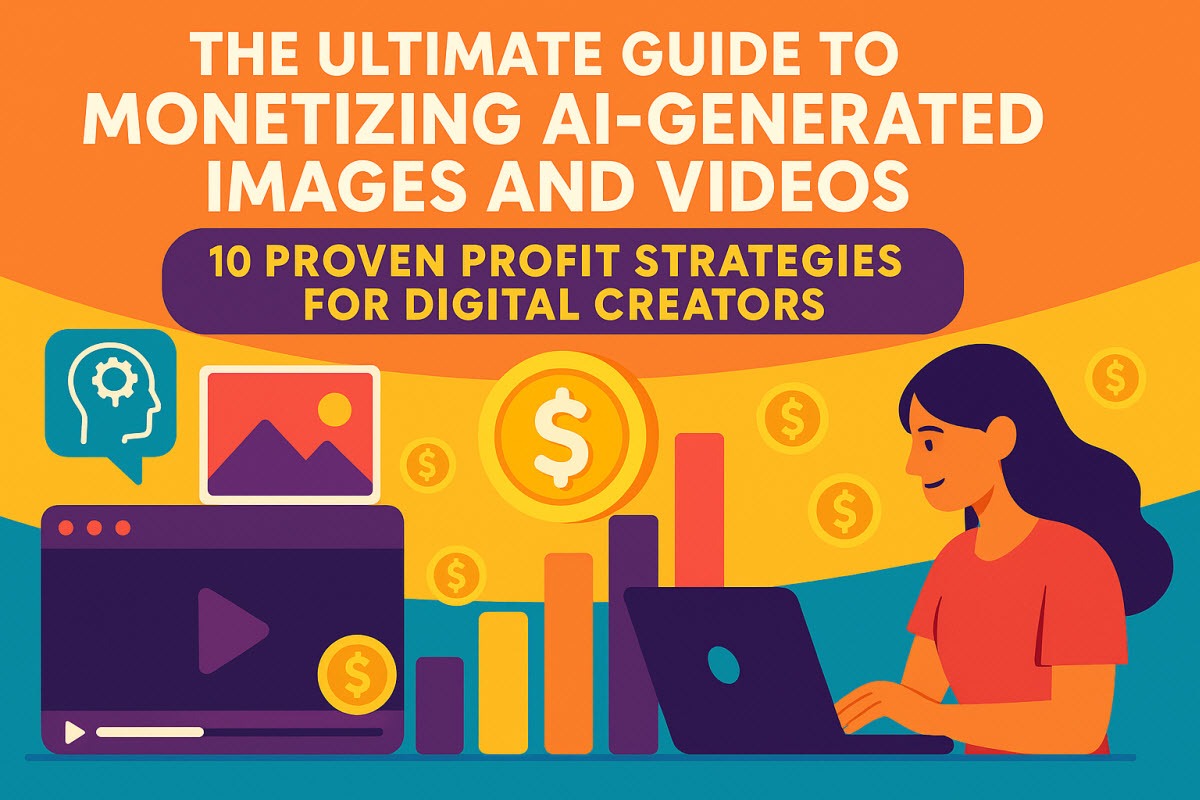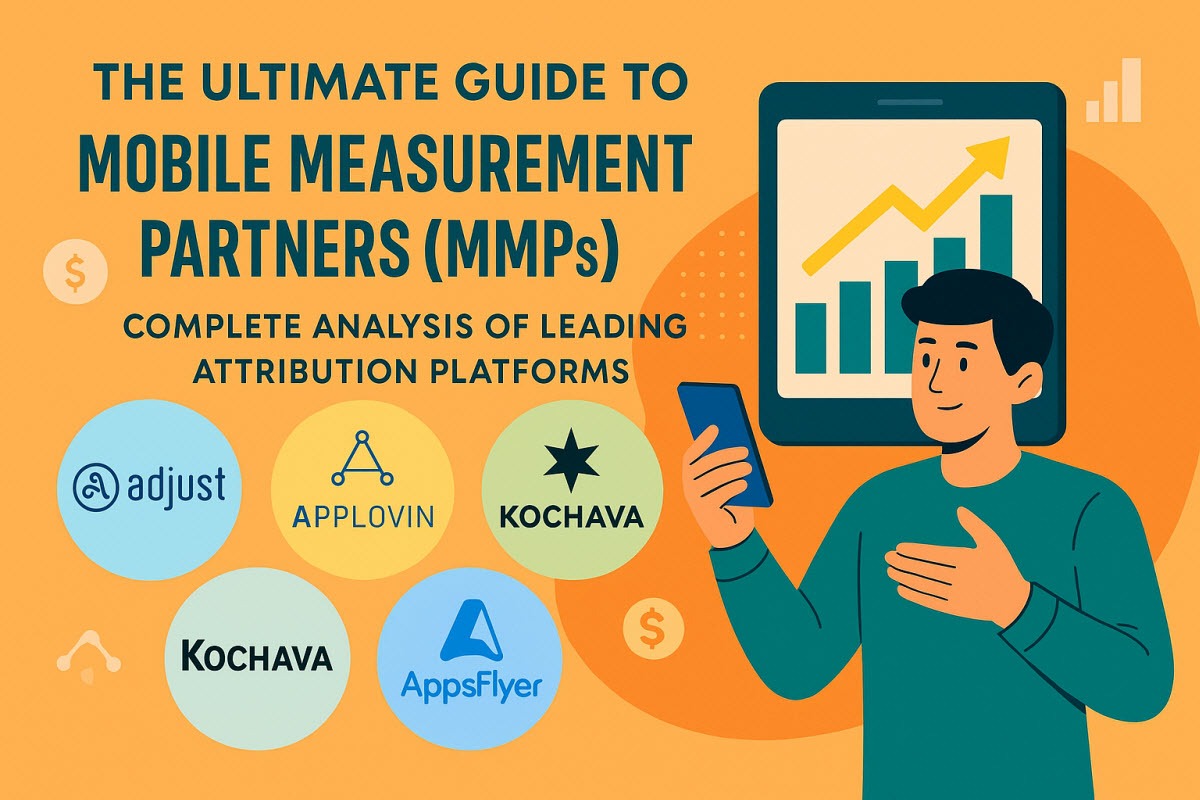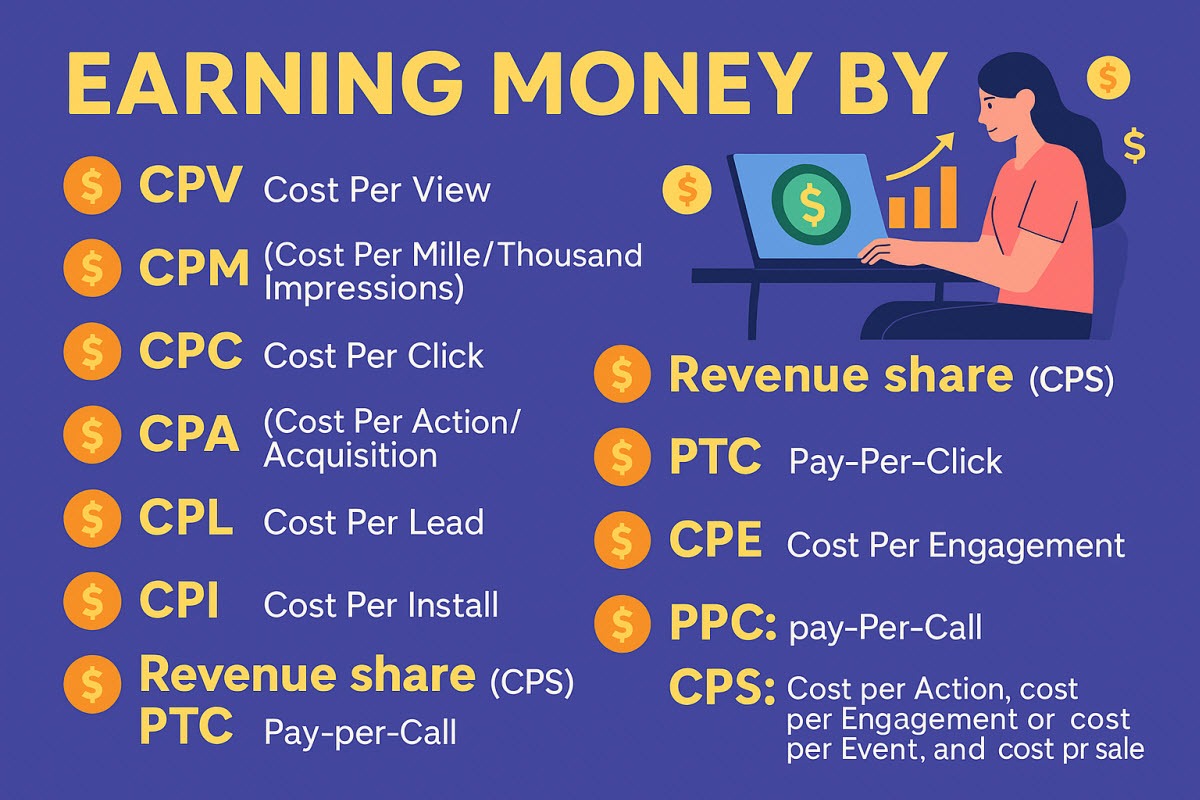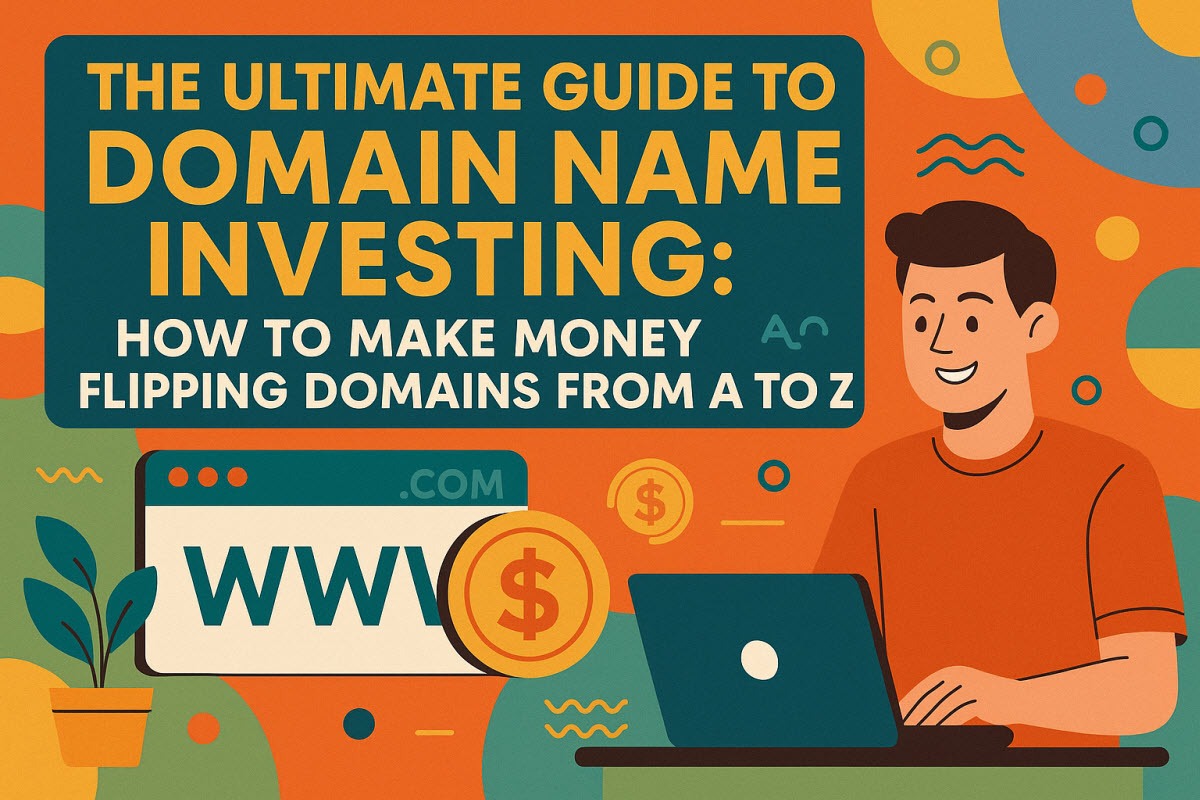The Ultimate Guide to Making Money with Shopify, WooCommerce, and BigCommerce: A Comprehensive Comparison for Beginners and Professionals
An e-commerce platform that fits you perfectly can either be the cause for your online business's success or the reason why it fails in a blink of an eye in the digital marketplace of today. If you are a side hustler interested in profitable side hustles or a seller seeking to grow your e-stores' market, you ought to grab the nitty-gritty of Shopify, WooCommerce, and BigCommerce. Knowing these differences is an essential key to the greater flow of money.
What you really are supposed to do with the three top e-commerce software options, in every sense of which store is most profitable, what are the charges, how to apply the whole mode in the real world are some of the topics treated in this extensive summary of the most prominent e-commerce platforms.
Table of Contents
- Platform Overview and Core Features
- Cost Analysis and Pricing Structure
- Revenue Generation Strategies
- Dropshipping and Fulfillment Options
- SEO and Marketing Capabilities
- Scalability and Growth Potential
- Payment Processing and Transaction Fees
- Third-Party Integrations and Apps
- Design Flexibility and Customization
- Support and Community Resources
- Success Stories and Case Studies
- Making the Right Choice for Your Business
Platform Overview and Core Features {#platform-overview}
Shopify: The All-in-One E-commerce Solution
Website: https://www.shopify.com
Shopify is the most popular e-commerce platform in the world providing a service to over one million businesses across the globe. Consequently, the range of customers goes from the tiniest companies making their very first steps to world-renowned corporations having their own online shops and much more. Along with the step of building the website, Shopify is the perfect e-commerce solution to process payments.
Key Features:
- Hosted solution with built-in security and maintenance
- Mobile-responsive themes and templates
- Integrated payment gateway (Shopify Payments)
- Multi-channel selling capabilities
- Advanced analytics and reporting
- 24/7 customer support
- App ecosystem with over 6,000 applications
Best For: Those wishing for a swift starting up of their business, companies demanding the most trustworthy hosting service, and firms willing to sacrifice technical versatility for user-friendliness, and finally, entrepreneurs.
WooCommerce: The WordPress-Powered Flexibility Champion
Website: https://woocommerce.com
WooCommerce focuses on WordPress sites and converts them into very customizable online stores, where they can do just about anything they want. Though it is open-source, users still have complete command of their online store's performance and visual while benefiting from WordPress's content management capabilities.
Key Features:
- Open-source and fully customizable
- Smooth WordPress integration
- Access to a virtually unlimited number of plugins and add-ons
- Complete control over your data and code
- WordPress power features to SEO
- Various payment gateway options to choose from
- Established community support and easily accessed resources
Best For: Companies with the skillset to handle technical aspects, content-heavy websites, and willing entrepreneurs desiring the highest degree of customization.
BigCommerce: The Enterprise-Ready Powerhouse
Website: https://www.bigcommerce.com
BigCommerce is the enterprise e-commerce solution that provides feature-rich native components without relying on many third-party applications. It is a perfect fit for businesses who want to utilize the maximum out-of-the-box power of their products.
Key Features:
- Zero transaction fees applying to any plan
- Feature-rich in-built functions (e.g., abandoned cart recovery, coupons, reviews)
- Integration with selling on multiple channels
- Powerful API and headless commerce capabilities
- Security and performance of the enterprise-grade
- Detailed analytics and reporting
- Fast track SEO tools and features
Best For: The businesses that are on a path to development, the enterprises with complicated demands, and companies that emphasize product function over usage of apps.
Cost Analysis and Pricing Structure {#cost-analysis}
One very important step in calculating your potential return of investment and profit margin is to uncover the true cost of each platform.
Shopify Pricing Structure
Basic Shopify: $29/month
- Online store and blog
- Unlimited products
- 24/7 support
- Manual order creation
- Discount codes
- Transaction Fee: 2.9% + 30¢ per transaction
Shopify: $79/month
- Everything in Basic
- Professional reports
- Advanced shipping rates
- Transaction Fee: 2.6% + 30¢ per transaction
Advanced Shopify: $299/month
- Everything in Shopify
- Advanced report builder
- Third-party calculated shipping rates
- Transaction Fee: 2.4% + 30¢ per transaction
Shopify Plus: Starting at $2,000/month
- Enterprise-level features
- Dedicated support
- Transaction Fee: Negotiable rates
WooCommerce Pricing Structure
Base Cost: Free (WordPress plugin)
Additional Costs:
- Hosting: $10-100+ per month (depending on traffic and provider)
- Domain: $10-15 per year
- SSL Certificate: $0-200 per year (most hosts provide free SSL)
- Premium Themes: $50-200 one-time cost
- Premium Plugins: $50-500+ per year (depending on the number of features)
- Payment Processing: Gateway will decide the price (usually 2.9% + 30¢)
Total Monthly Cost: The money you need will be between $50 and $500 depending on the pattern of your site and the number of visitors.
BigCommerce Pricing Structure
Standard: $29.95/month
- Unlimited products, storage, and bandwidth
- Multi-channel selling
- Coupons and discounts
- No transaction fees
Plus: $79.95/month
- Everything in Standard
- Abandoned cart recovery
- Customer groups and segmentation
- No transaction fees
Pro: $299.95/month
- Everything in Plus
- Advanced faceted search
- Google customer reviews
- No transaction fees
Enterprise: Custom pricing
- Custom SSL
- Dedicated account management
- No transaction fees
Revenue Generation Strategies {#revenue-strategies}
While they may seem direct, each platform set-up gives you multiple ways not only to increase your revenue flows but also to build a profitable store online.
Direct Product Sales Revenue
Shopify Revenue Optimization:
- Make use of Shopify in-built upselling and cross-selling features
- Apply abandoned cart recovery (accessible on all plans)
- Exploit Shopify POS for omnichannel selling
- Use Shopify data to make adjustments in your product pricing
- Average Profit Margin: 20-50% depending on product category
WooCommerce Revenue Optimization:
- Put up revenue-boosting plugins like WooCommerce Subscriptions
- Activate dynamic pricing boutiques with extensions
- Support sales through SEO tactics
- Build community sites for subscription models
- Average Profit Margin: 25-60% (higher due to lower platform costs)
BigCommerce Revenue Optimization:
- Leverage built-in product filtering to increase conversion rates
- Utilize customer segmentation for highly-efficient targeted marketing
- Implement multi-channel selling to gain access to various marketplaces
- Employ in-built SEO tools to attract free traffic
- Average Profit Margin: 22-55% (no transaction fees significantly increase profitability)
Dropshipping Opportunities
Dropshipping is one of the easiest ways to enter the e-commerce world, and our thorough A to Z guide to making money by dropshipping provides step-by-step instructions for eking out profits on any platform.
Shopify Dropshipping:
- Oberlo Integration: Import products directly from AliExpress without hassle
- Spocket: Gain access to suppliers in the EU/US for faster delivery of your products
- Modalyst: Access high quality suppliers with the help of automation
- Average Profit Margin: 15-30%
- Setup Time: 1-3 days
- Monthly Investment: $50-$200 including apps and advertising
WooCommerce Dropshipping:
- AliDropship Plugin: Fully automated AliExpress integration
- WooDropship: Multi-vendor management platform
- Printful Integration: Print-on-demand service for custom products
- Average Profit Margin: 20-35% (higher due to lower platform costs)
- Setting up time: 3-7 days (more technical required)
- Monthly Investment: $30-150 plus hosting costs
BigCommerce Dropshipping:
- Inventory Source: Multi-supplier automation
- Printful Integration: Print-on-demand capabilities
- DropshipZone: Product sourcing and automation
- Average Profit Margin: 18-32%
- Setup Time: 2-5 days
- Monthly Investment: $60-250 including apps
Subscription and Recurring Revenue Models
Shopify Subscriptions:
- ReCharge: Leading subscription management app
- Bold Subscriptions: Advanced recurring billing features
- PayWhirl: Simple subscription setup
- Revenue Potential: $500-50,000+ monthly recurring revenue
WooCommerce Subscriptions:
- WooCommerce Subscriptions Plugin: Official recurring payments solution
- YITH WooCommerce Subscription: Alternative subscription management
- Revenue Potential: $300-100,000+ monthly recurring revenue
BigCommerce Subscriptions:
- Recurly Integration: Enterprise-level subscription management
- Chargebee: Comprehensive subscription billing
- Revenue Potential: $400-75,000+ monthly recurring revenue
Dropshipping and Fulfillment Options {#dropshipping}
Knowing and understanding fulfillment options will be an asset for scaling your business efficiently with high profit margins.
Automated Fulfillment Solutions
Shopify Fulfillment Network:
- Service: Fulfilling customer orders completely by themselves
- Coverage: Local warehouses in the US
- Cost: Combining storage fees, pick/pack fees, and shipping fees
- Benefits: Next-day delivery, stock management, returns processing
Amazon FBA Integration:
- Shopify: By utilizing apps such as Fulfillment by Amazon or SellerActive
- WooCommerce: Via plugins like WP-Lister
- BigCommerce: Direct Amazon integration is available
- Profit Impact: It leads to a reduction in the cost of fulfillment by up to 40%
Third-Party Logistics (3PL) Providers:
- ShipBob: It is compatible with different platforms and has good rates
- Fulfillment by Amazon: Use the Amazon network to deliver your products
- ShipStation: It offers shipping services through different carriers
- Red Stag Fulfillment: It focuses heavily on shipping and storage of large or heavy products
Print-on-Demand Opportunities
Print-on-demand is an excellent opportunity for creative entrepreneurs and complements profitable side hustle strategies, which require almost no initial investment.
Popular Print-on-Demand Providers:
- Printful: Can be used with all three platforms, offers premium products
- Printify: The prices are lower, and the assortment is bigger
- Gooten: Has a worldwide order fulfillment network
- Teespring: Built-in marketing tools and social media integration
Revenue Potential:
- Average Order Value: $15-45
- Profit Margins: 20-40%
- Monthly Revenue Potential: $500-25,000+
SEO and Marketing Capabilities {#seo-marketing}
SEO and marketing tools have a strong influence on your organic traffic and virtual customer acquisition costs.
SEO Capabilities Comparison
Shopify SEO:
- Built-in Features: Basic SEO settings, URL customization, meta tags
- Apps: SEO Manager, TinyIMG, Plug in SEO
- Strengths: Good code structure, mobile optimization, fast loading times
- Limitations: Limited blog functionality, URL structure constraints
- SEO Score: 7/10
WooCommerce SEO:
- Built-in Features: Complete WordPress SEO capabilities, unlimited content creation
- Plugins: Yoast SEO, RankMath, All in One SEO
- Strengths: Unlimited content possibilities, full control of technical SEO
- Limitations: Difficult for non-technical users to optimize
- SEO Score: 9/10
BigCommerce SEO:
- Built-in Features: Customizable SEO settings, automatically generated sitemap, structured data
- Apps: SEO Pro, Advanced SEO, Google Analytics Enhanced Ecommerce
- Strengths: Clean URLs, fast loading times, built-in microdata
- Limitations: Limited blogging capabilities
- SEO Score: 8/10
Content Marketing Opportunities
Content Marketing Revenue Impact:
- Businesses that have blogs produce 67% more leads each month
- Using content marketing is 62% cheaper than traditional marketing
- The companies who blog get 97% more backlinks to their websites
Platform Content Capabilities:
- Shopify: Limited content and basic blogging features
- WooCommerce: WordPress CMS with full feature and limitless content
- BigCommerce: The blog was updated and good for product-focused content
Scalability and Growth Potential {#scalability}
Being able to foresee how each platform is going to perform when it comes to growth is crucial when you want to have a successful business for a long period and make more profits.
Traffic and Performance Handling
Shopify Scalability:
- Traffic Capacity: Very high without the need for managing additional infrastructure
- Performance: 99.8% uptime availability, global CDN is included in the package
- Scaling Costs: Fixed monthly fees, the option of higher-tier plans for more advanced features
- Enterprise Solution: High-volume tech Shopify Plus
WooCommerce Scalability:
- Traffic Capacity: Whatever the hosting solution you have chosen
- Performance: Depends on the quality of the hosting and the optimization
- Scaling Costs: Hosting expenditures surging with traffic, server upgrades may be required
- Enterprise Solution: WooCommerce VIP or managed WordPress hosting
BigCommerce Scalability:
- Traffic Capacity: Without any limitations on bandwidth, infrastructure ready for enterprises
- Performance: 99.9% uptime guarantee, global CDN included
- Scaling Costs: Predictable monthly fees, no transaction fee increases
- Enterprise Solution: BigCommerce Enterprise with custom features
Multi-Channel Selling Opportunities
Revenue Multiplication Through Channel Diversification:
Shopify Multi-Channel:
- Marketplaces: Amazon, eBay, Etsy, Walmart
- Social Media: Facebook Shop, Instagram Shopping, TikTok
- POS Integration: Shopify POS for in-person sales
- Revenue Impact: Businesses using multi-channel selling see 190% higher revenue
WooCommerce Multi-Channel:
- Marketplaces: Via plugins like WP-Lister, ChannelSale
- Social Media: Facebook for WooCommerce, Instagram integration
- POS Integration: Third-party POS solutions available
- Revenue Impact: Requires more setup but offers maximum flexibility
BigCommerce Multi-Channel:
- Marketplaces: Native integrations with Amazon, eBay, Google Shopping
- Social Media: Facebook, Instagram, Pinterest built-in
- POS Integration: Partnership with leading POS providers
- Revenue Impact: Streamlined multi-channel management increases efficiency
Payment Processing and Transaction Fees {#payment-processing}
Payment processing fees directly affect your profit margins and should be taken into account very carefully when choosing a platform for your business.
Payment Gateway Options and Costs
Shopify Payment Processing:
- Shopify Payments: 2.9% + 30¢ (Basic), 2.6% + 30¢ (Shopify), 2.4% + 30¢ (Advanced)
- Third-Party Gateways: You have to pay an additional 2% on top of the gateway rates
- International Cards: An additional 1% fee will be charged
- Popular Gateways: PayPal, Stripe, Authorize.net
- Profit Impact: If you use higher fees your margins can be reduced by 2-4%
WooCommerce Payment Processing:
- No Platform Fees: Just the gateway processing fees are charged
- Popular Gateways: Stripe (2.9% + 30¢), PayPal (2.9% + 30¢), Square (2.6% + 10¢)
- International Options: There are plenty of gateway options
- Cryptocurrency: Bitcoin, Ethereum payment options are available
- Profit Impact: The lower overall processing costs lead to the increase of margins by 1-3%
BigCommerce Payment Processing:
- No Transaction Fees: This is the main reason for BigCommerce advantages over its competitors
- Popular Gateways: PayPal, Stripe, Square, Authorize.net
- Processing Rates: You are expected to pay standard gateway rates like 2.9% + 30¢
- International Support: More than 100 payment gateways are available
- Profit Impact: There are no additional platform fees so the maximum profit retention is possible
International Payment Solutions
Global Market Revenue Opportunities:
- International e-commerce accounts for 57% of global online sales
- Cross-border e-commerce is expected to reach $4.8 trillion
- Businesses that sell internationally experience 40% higher revenue growth
Platform International Capabilities:
- Shopify: 17 languages, 130+ countries, multi-currency support
- WooCommerce: Unlimited international customization options
- BigCommerce: Multi-currency, international tax management, global CDN
Third-Party Integrations and Apps {#integrations}
The ecosystem of third-party applications can significantly extend your platform's capabilities and revenue potential.
Marketing and Analytics Integrations
Essential Marketing Tools:
Email Marketing Integration:
- Mailchimp: All platforms supported, automation capabilities
- Klaviyo: Advanced e-commerce email marketing, behavioral targeting
- Constant Contact: User-friendly interface, good for beginners
- Revenue Impact: Email marketing generates $42 for every $1 spent
Social Media Marketing:
- Facebook Ads Manager: Pixel integration, lookalike audiences
- Google Ads: Shopping campaigns, remarketing capabilities
- Instagram Shopping: Product tagging, direct checkout
- TikTok for Business: Video commerce, influencer partnerships
Analytics and Tracking:
- Google Analytics: E-commerce tracking, conversion analysis
- Hotjar: User behavior analysis, heat mapping
- Lucky Orange: Real-time visitor recordings, conversion optimization
Inventory Management Solutions
Multi-Platform Inventory Systems:
- TradeGecko (QuickBooks Commerce): Complete inventory management
- Cin7: Inventory synchronization channels multi
- Stitch Labs: Inventory tracking in real-time across channels
- SkuVault: Advanced warehouse management system
Revenue Benefits:
- Efficient inventory management reduces stock outs by 75%
- Automated inventory systems are 80% effective in reducing manual errors
- Inventory multi-channel sync raises sales opportunities by 35%
Design Flexibility and Customization {#design-flexibility}
The design of your store has a significant impact on conversion rates and customer trust, so design flexibility is an essential factor of profit.
Theme and Template Options
Shopify Themes:
- Free Themes: 10 professionally crafted themes included
- Premium Themes: $140-350, made by professionals
- Customization: Liquid templating language, needs coding knowledge
- Mobile Optimization: All themes are mobile-responsive
- Conversion Impact: Professional design boosts conversions by 25-40%
WooCommerce Themes:
- Free Themes: Thousands available through WordPress repository
- Premium Themes: $50-200, numerous marketplace options
- Customization: Technical control through PHP, CSS, HTML
- Page Builders: Elementor, Beaver Builder, Divi integration
- Conversion Impact: Custom designs can raise conversions up to 50-100%
BigCommerce Themes:
- Free Themes: 12 professional themes included
- Premium Themes: $145-395, with high-quality designs
- Customization: Stencil framework, JavaScript-based
- Mobile Optimization: All themes were optimized for mobile
- Conversion Impact: Built-in features allow conversions to increase by 20-35%
Conversion Rate Optimization Features
Built-in CRO Tools:
Shopify CRO Features:
- Abandoned cart recovery
- Discount code creation
- Product recommendations
- Customer reviews integration
- Exit-intent popups (via apps)
WooCommerce CRO Features:
- Unlimited A/B testing capabilities
- Custom checkout processes
- Advanced coupon systems
- Wishlist functionality
- One-click upsells and cross-sells
BigCommerce CRO Features:
- Built-in abandoned cart recovery
- Customer groups and segmentation
- Advanced coupon and discount rules
- Product filtering and search
- Reviews and ratings system
Support and Community Resources {#support}
Accessing reliable support and resourceful learning materials can positively affect your success rate and your ability to solve problems easily.
Official Support Channels
Shopify Support:
- 24/7 Support: Phone, live chat, email support at all times for all plans
- Help Center: Specific documentation and tutorials
- Shopify Academy: Free e-commerce courses
- Community Forum: Community of active merchants for the peer support
- Response Time: Average of 2-4 hours for email, immediate for chat
WooCommerce Support:
- Community Support: Free support from WordPress forums
- Premium Support: Paid with extensions only
- Documentation: Developer and user doc is very detailed and comprehensive
- WooCommerce University: Resources and courses
- Response Time: Community-based for free users with varying times
BigCommerce Support:
- 24/7 Support: On all plans phone and live chat support
- Help Center: Setup guides and detailed documentation
- BigCommerce University: Free and open educational content
- Developer Documentation: API and customization guides quite detailed
- Response Time: Average of 1-3 hours for the first reply
Learning Resources and Communities
Educational Platforms:
- Shopify Academy: Free courses from store setup to advanced marketing
- WooCommerce University: Comprehensive e-commerce education
- BigCommerce University: Business growth and platform training
Community Resources:
- Facebook Groups: Merchant communities specific to the platform
- Reddit Communities: r/shopify, r/woocommerce, r/bigcommerce
- YouTube Channels: Every platform has thousands of tutorial channels
- Podcasts: E-commerce shows with platform experts as guests
Success Stories and Case Studies {#success-stories}
Besides traditional ways, the entrepreneurs to be can learn from the real giants how to increase their revenues on various marketplaces/platforms.
Shopify Success Stories
Gymshark:
- Platform: Shopify Plus
- Revenue: More than $500M yearly
- Strategy: Influencer marketing, community building, direct-to-consumer focus
- Key Lessons: A powerful brand identity and a well-activated community can be your engines to scale to infinity
Allbirds:
- Platform: Shopify Plus
- Revenue: $200M+ yearly
- Strategy: Eco-friendly products, outstanding customer experience, brand consistency
- Key Lessons: Environment caring concept in a brand is highly attractive to today's customers
Fashion Nova:
- Platform: Shopify Plus
- Revenue: $400M+ yearly
- Strategy: Social media marketing, influencer partnerships, fast fashion model
- Key Lessons: Social media presence can be the major driver to an exponential growth
WooCommerce Success Stories
Weber Grills:
- Platform: WooCommerce
- Strategy: Content marketing, detailed product information, local dealer integration
- Key Lessons: B2B adventures with complex needs don't scare us with WooCommerce and customization
Porter and York:
- Platform: WooCommerce
- Strategy: Premium product positioning, subscription model, content marketing
- Key Lessons: The malleability of WooCommerce grants the freedom to create unprecedented business models
BigCommerce Success Stories
Skullcandy:
- Platform: BigCommerce Enterprise
- Revenue: Over $200 million yearly
- Strategy: Multi-channel selling, international expansion, mobile-first approach
- Key Lessons: Global reach and mobile optimization are the two key factors for international success
Ben Sherman:
- Platform: BigCommerce
- Strategy: Brand heritage storytelling, omnichannel integration, personalization
- Key Lessons: Enterprise features allow for the complex management of retail operations
Advanced Profit Maximization Strategies
Conversion Rate Optimization Techniques
A/B Testing Implementation:
- Experiment with product page layouts, checkout processes, and pricing strategies
- Employ tools such as Google Optimize, Optimizely, or VWO
- Anticipated impact: Conversion rate uplift of 15-25%
Personalization Strategies:
- Use product recommendations triggered by browsing history
- Employ dynamic pricing tailored for each customer segment
- Develop personalized email marketing campaigns
- Anticipated impact: Incremental revenue of 20-30% per customer
Mobile Optimization:
- Adopt a mobile-first design approach
- Add mobile-specific features such as one-touch checkout
- Speed up page loading for mobile devices
- Anticipated impact: Mobile conversion rate uplift of 35-50%
Advanced Marketing Automation
Customer Lifecycle Automation:
- Welcome series for new subscribers
- Abandoned cart recovery sequences
- Follow-up emails after a purchase
- Re-engagement emails to dormant subscribers
- Predicted enhancement: Customer lifetime value (CLV) boost of 25-40%
Inventory-Based Marketing:
- Alerts for products that are almost out of stock to motivate buyers
- Notifications for products that have come back in stock
- Promotions for leftover seasonal inventory
- Predicted enhancement: Inventory turnover rate increase of 15-25%
International Expansion Strategies
Multi-Currency Implementation:
- Show prices in users' local currencies
- Provide tools for currency conversion
- Make it easy for users of different countries to pay using local methods
- Predicted enhancement: International conversion rates uplift by 40-60%
Localization Techniques:
- Translate product descriptions and other texts
- Match local culture and preferences
- Make changes to shipping and return policies that accommodate the local area
- Predicted enhancement: International sales increase by 50-100%
Making the Right Choice for Your Business {#final-decision}
What is the best e-commerce platform to achieve your business goals, depends a lot on your company and what you are good with technically, plus growth objectives.
Decision Framework
Choose Shopify If:
- The most important thing for you is the simplicity of use and quick set-up
- You are more in favor of the one-stop hosted solution
- You want the support to be available anytime all days of the week
- You are seeking to quickly widen your operations without technical difficulties
- You like having the extensive app ecosystem at your disposal
- Best For: New entrepreneurs, small businesses, businesses that want ease of use
When to Use WooCommerce:
- If you want the ability to tweak and customize the look and feel of your store in any way you wish
- If you have the technical skills or the resources to hire people to do the technical stuff for you
- If you want to be in charge of the data and hosting all by yourself
- If you focus on content marketing as well as SEO
- If you require some very complicated functions that are not available in hosted versions
- Best For: Software developers, content-rich companies, enterprises with specific requirements
When to Use BigCommerce:
- If you want to have access to very powerful features that are built into the system without having to install apps
- If avoiding paying the transaction fees will be your priority
- If you require enterprise-level features but at mid-market prices
- If you plan to distribute your products very quickly through different sales channels
- If you are into headless commerce and API is very important to you
- Best For: Businesses with the potential to grow, enterprises, companies that are focused on profits
ROI Calculation Framework
Total Cost of Ownership (TCO) Analysis:
Year 1 Costs (Estimated):
- Shopify: $1,500-4,000 (including apps, themes, and transaction fees)
- WooCommerce: $1,200-6,000 (including hosting, plugins, and development)
- BigCommerce: $1,200-3,600 (no transaction fees, fewer required apps)
Revenue Potential (Conservative Estimates):
- Beginner Level: $5,000-25,000 annually
- Intermediate Level: $25,000-100,000 annually
- Advanced Level: $100,000-1,000,000+ annually
Profit Margin Expectations:
- Shopify: 18-35% (after all fees and costs)
- WooCommerce: 25-45% (higher margins due to lower platform costs)
- BigCommerce: 22-40% (no transaction fees improve profitability)
Conclusion: Your Path to E-commerce Success
Getting to e-commerce success is not merely about picking out the best platform but a deep understanding of your target market, perfecting your operations, and always catering changing customer needs. On top of that, whether utilizing the stability of Shopify, the adaptability of WooCommerce, or the indecent vigor of BigCommerce, the result turns out to be the beater of the value proposition and dedication to customers' welfare.
Leveraging the exclusive USP-features of every piece of software will be enough to turn them into your allies for different types and kinds of businesses and expansion schemes. You are free to initiate the most elaborate dropshipping strategies, and/or you can create the most revenue-generating side projects that work together with your primary business, thereby you have no limit to the ways through which you can generate turnover.
Keep in mind that determining the right platform for your business is only step one. Get deep insights about your customers, optimize your conversion rates, and create business models that adhere to sustainable practices and focus more on the long term rather than the short term. Practice, the right playing strategy, and an open mind will turn any of these platforms into a fortress of a highly profitable online business.
Key Takeaways:
- Begin with identifying the specific business needs and technical capabilities of your business
- Think about the total ownership cost instead of just the monthly platform fees
- From the very first day plan for development and scalability
- Get resources in learning and community to invest in
- Work on conversion optimization and customer experience
- Use multi-channel to access more sources of income
- Keep on testing and adjusting your strategies
The landscape of e-commerce keeps changing at a fast pace thus, opening new avenues for starters as well as old businesses to have a share in it. With the proper selection of the platform and taking up the profit maximization strategies that have been proven right, the online business can get to flourish and eventually rake in a substantial amount of money making it financially secure for the long term.
The best time to start your e-commerce journey is today. Moreover, don't forget that the ones who succeed are those who take time to learn, adapt, and remain steadfast during the hard times of building an online business. Your choice of the platform is of less significant than your dedication to putting your customers first and constantly enhancing your business operations.
